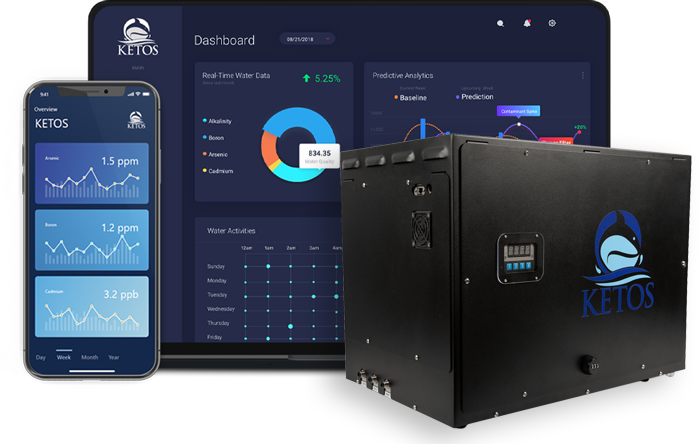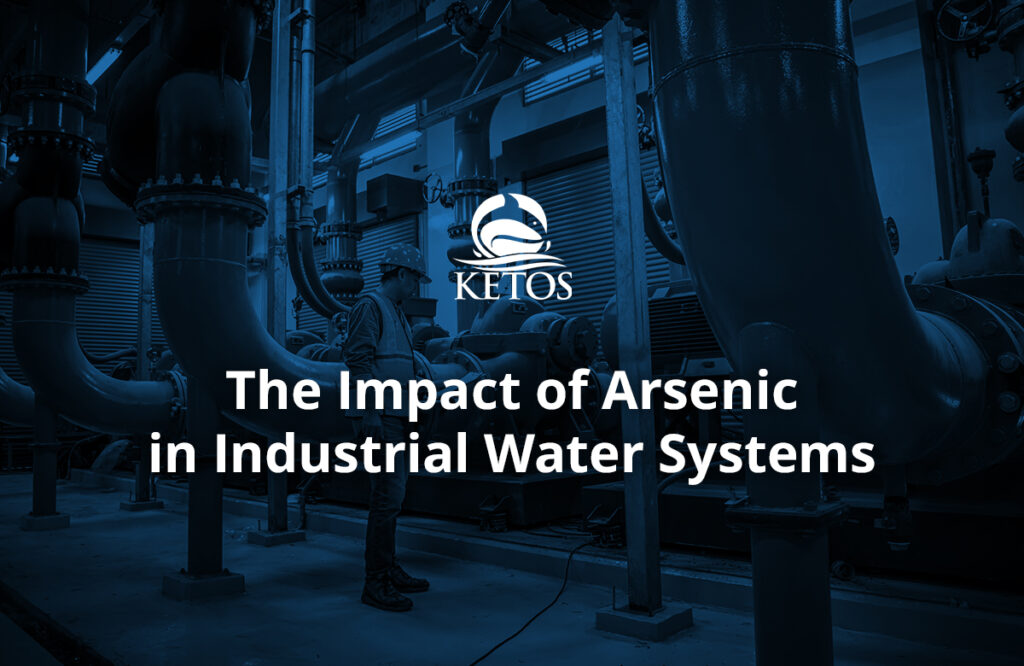Water is critical in chemical manufacturing industries such as pharmaceuticals, agrochemicals, and petrochemicals. It’s used for essential tasks like mixing raw materials, washing equipment, and heating and cooling operations. For instance, the pharmaceutical industry uses water to dissolve chemicals and ensure machinery is clean and free of contaminants during production runs.
It’s not enough to simply have water on hand; the quality of water used within these industries is important, too. Poor water quality can disrupt production processes, damage equipment, and lead to regulatory issues and fines. Within the agrochemical manufacturing industry, for example. poor water quality can interfere with the mixing of pesticides, impacting product effectiveness and safety.
Water Quality Testing: Optimize Your Operations And Stop Problems Before They Start
By working with a top water quality testing company and implementing robust water quality analysis methods, chemical manufacturers can optimize operations, protect equipment, comply with regulations, and save money. Regular testing helps catch problems early, ensuring consistent product quality and maintaining efficient, cost-effective production processes. Let’s explore the five main ways that high-quality water is essential for various aspects of chemical manufacturing.
1. Ensures Consistent Products
Chemical processes need high-quality water. If the water quality fluctuates during the manufacturing process, it can ruin the final product. For example, in the pharmaceutical industry, changes in pH levels or minerals in the water can significantly disrupt the production of drugs, leading to inconsistencies and ineffective products. Similarly, in the beverage industry, improper water quality can alter the taste and safety of drinks, which can result in products that don’t meet quality standards. This leads to losses, product recalls, and can potentially harm the company’s reputation.
With real-time water quality monitoring, companies like Pfizer and Coca-Cola can keep an eye on the water’s pH levels, mineral content, and presence of contaminants. This allows them to make necessary adjustments and keep the process stable.
2. Protects Equipment
Water in chemical manufacturing often contains minerals like calcium and magnesium. These minerals can build up inside pipes and other equipment, causing corrosion and making the manufacturing process less efficient. This buildup, known as scaling, acts as an insulating layer, reducing heat transfer efficiency and restricting water flow. The corrosion that this scaling causes can lead to leaks, failures, and costly repairs.
By checking water quality often, manufacturers can prevent problems like scaling and corrosion. This helps protect expensive equipment and will keep it working longer. For instance, by monitoring water for hardness and pH, companies can take steps to control scaling and prevent corrosive damage. This reduces maintenance costs and prolongs the lifespan of their equipment.
3. Meets Environmental Rules
Factories must follow strict rules about wastewater discharge. They need to check their water regularly to make sure they aren’t releasing harmful pollutants into the environment. Regulations set maximum allowable limits for contaminants like heavy metals, toxic substances, and pH levels. Non-compliance with EPA regulations for wastewater discharge can lead to hefty fines, legal troubles, and damage to the company’s reputation.
Frequent water quality tests ensure that factories meet these rules. If problematic levels are detected, treatment processes can be adjusted or discharge can be rerouted until the issue is resolved. This helps companies avoid penalties and ensure they are not harming the environment. In addition, by monitoring influent water, companies can identify and mitigate incoming contaminants that could impact processes or contribute to pollutant discharge.
4. Saves Money and Energy
Using poor-quality water can lead to high treatment and maintenance costs. Dirty water can clog pipes and make equipment less efficient, leading to higher energy costs. For instance, pumps need to work harder to push water through fouled pipes, and more energy is required for heating processes due to scale buildup.
By analyzing water quality, companies can save money on water treatment and reduce energy use. Continuous water quality monitoring allows companies to optimize treatment processes for their specific water supply characteristics. This helps minimize unnecessary over-treatment, reduce treatment costs, and enhance the overall efficiency of water use. Monitoring scaling parameters enables companies to implement procedures that minimize buildup, reducing the need for frequent component replacements and associated downtime. This leads to significant cost savings and improved profitability.
Companies can also explore the impact of water quality on agricultural water management and the pharmaceutical industry to understand its broader implications.
5. Supports Modern Manufacturing
Many chemical manufacturers are updating their processes with smart technology. This includes using Internet of Things (IoT) devices and data analytics for predictive maintenance. Advanced water quality monitoring systems collect real-time data on critical parameters like pH, dissolved solids, and heavy metals, and feed it into centralized analytics platforms.
Smart water quality monitoring systems can collect real-time data and provide insights to prevent problems before they happen. This water quality data can be integrated with other manufacturing data sources using interoperable systems. Applying machine learning and artificial intelligence to this unified data enables the identification of patterns, correlations, and deviations, providing valuable insights for predictive maintenance. This helps companies reduce downtime, prevent water quality issues, and keep production running smoothly.
By leveraging smart water quality monitoring and analytics solutions, chemical companies can operate more efficiently, reliably, and profitably. This supports their modernization efforts and positions them for long-term competitiveness in line with Industry 4.0 principles.
Key Water Contaminants and Their Impact on Different Sub-Sectors
Water quality is vital in chemical manufacturing, where various contaminants can disrupt processes and impact product quality. Below is a summary of key contaminants and their effects across different sub-sectors.
| Sub-Sector | Common Contaminants | Impact |
| Basic Chemical Manufacturing | Heavy metals, pH fluctuations, organic matter | Unwanted reactions, product contamination |
| Resin, Synthetic Rubber, and Synthetic Fibers Manufacturing | Chlorides, dissolved solids, trace metals | Disrupted polymerization, poor product quality |
| Pesticide, Fertilizer, and Agricultural Chemical Manufacturing | Hardness ions, nitrates, phosphates | Reduced pesticide efficacy, unstable mixtures |
| Pharmaceutical and Medicine Manufacturing | Microbial contamination, endotoxins, pyrogens | Compromised sterility, safety risks |
| Paint, Coating, and Adhesive Manufacturing | Suspended solids, organic compounds, particulates | Defective coatings, poor adhesion |
| Soap, Cleaning Compound, and Toilet Preparation Manufacturing | pH imbalances, mineral content, surfactants | Reduced efficacy, stability issues |
Each sub-sector must manage these contaminants effectively to ensure smooth operations, maintain product quality, and comply with regulations.
Partner with a Water Quality Testing Leader
KETOS offers advanced water analysis services that include real-time water efficiency monitoring , IoT connectivity, and data-driven insights. These solutions help chemical manufacturers maintain efficient, compliant, and forward-thinking operations, supporting modernization and sustainable growth.
For chemical manufacturing, KETOS provides tailored water quality monitoring solutions that ensure process stability and regulatory compliance. Their water quality analysis methods and innovative monitoring capabilities highlight their expertise in enhancing operational efficiency and reducing costs.
To understand how KETOS can improve your water management practices, explore their industrial water quality solutions or contact us for detailed insights and personalized support.










